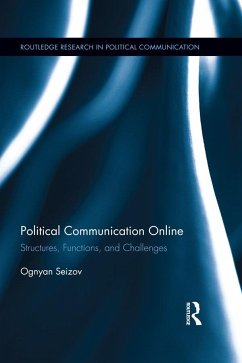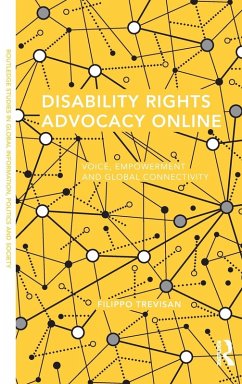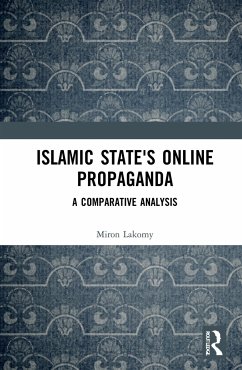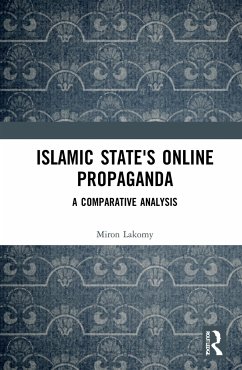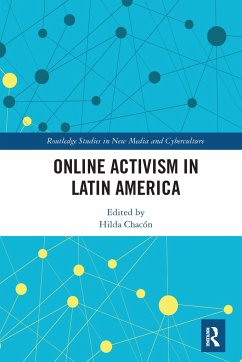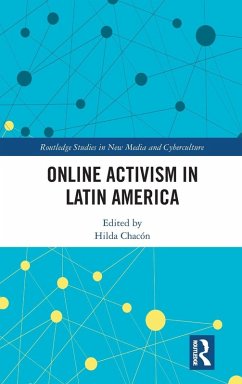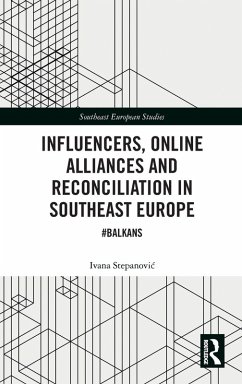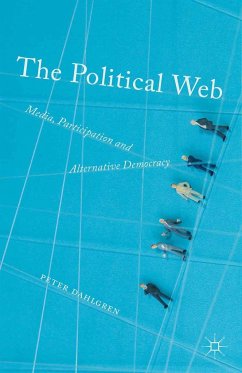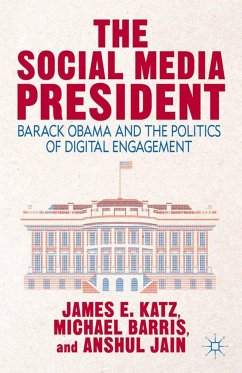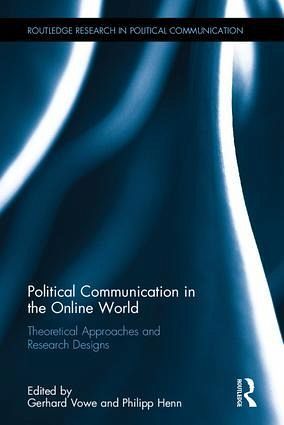
Political Communication in the Online World
Theoretical Approaches and Research Designs
Herausgeber: Vowe, Gerhard; Henn, Philipp

PAYBACK Punkte
93 °P sammeln!
As a consequence of the rapid diffusion of online media, the conditions for political communication, and research concerning it have radically changed. Is empirical communication research capable of consistently describing and explaining the changes in political communication in the online world both from a theoretical and methodological perspective? In this book, Gerhard Vowe and his team of leading international experts in the field of communication studies guide the reader through the complexities of political communication, and evaluate whether and to what extent existing theoretical appro...
As a consequence of the rapid diffusion of online media, the conditions for political communication, and research concerning it have radically changed. Is empirical communication research capable of consistently describing and explaining the changes in political communication in the online world both from a theoretical and methodological perspective? In this book, Gerhard Vowe and his team of leading international experts in the field of communication studies guide the reader through the complexities of political communication, and evaluate whether and to what extent existing theoretical approaches and research designs are relevant to the 'new' online world.





